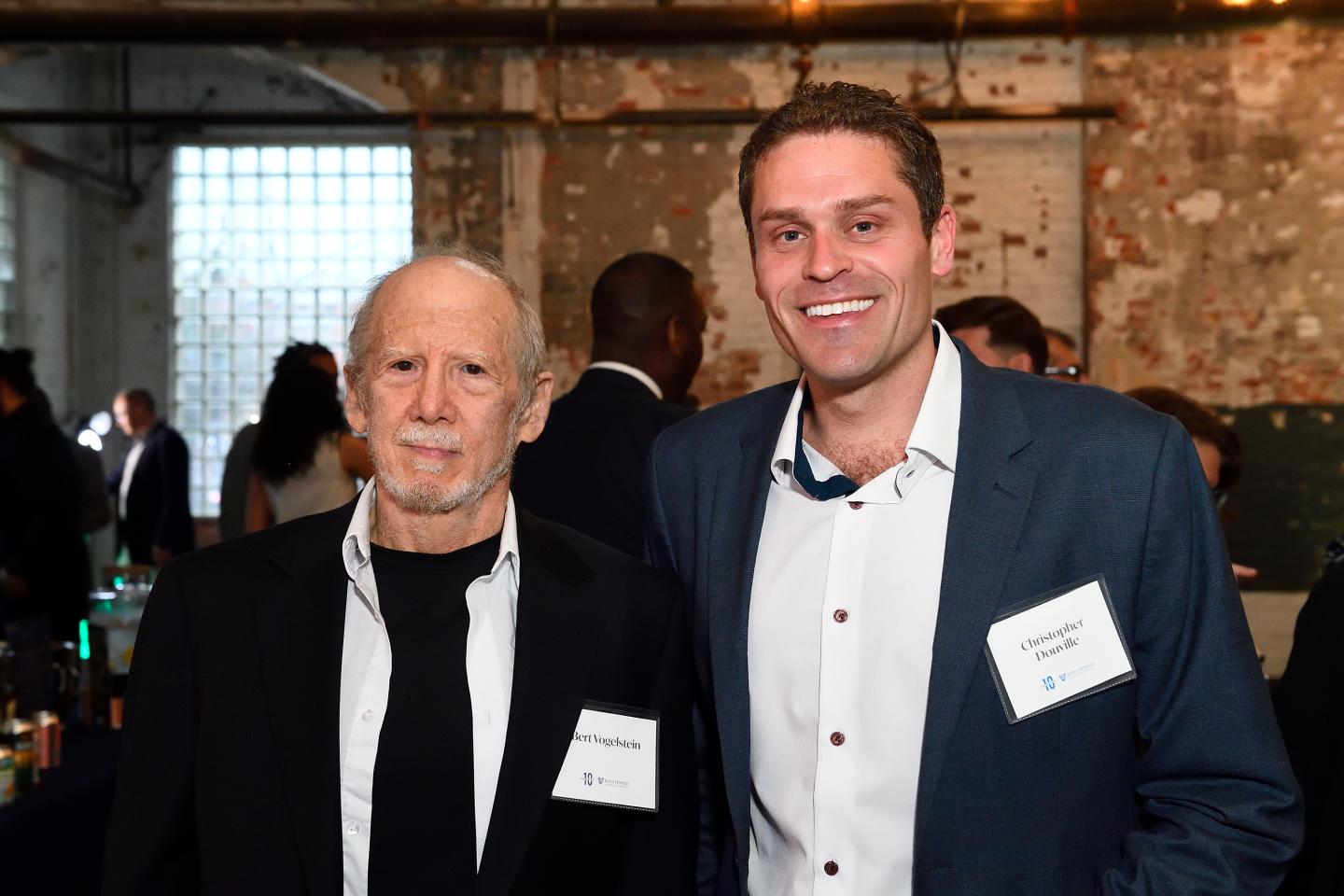Christopher Douville, an assistant professor of oncology at the Johns Hopkins University School of Medicine whose work focuses on detecting cancer using novel machine learning approaches to analyze blood and cerebrospinal fluid, was named the inaugural recipient of the Johns Hopkins President's Innovation Award last week in recognition of the promise of his scholarly pursuits.
The $250,000 President's Innovation Award is given annually to an early to mid-career faculty member who is focused on solving problems in society and translating research beyond academia. The award, which builds on the range of commercialization support and resources provided by Johns Hopkins Technology Ventures, was presented during an event celebrating JHTV's 10th anniversary. Douville was selected from a group of 28 nominees from across the university.
"As a graduate student and post-doctoral fellow, Chris worked alongside Hopkins faculty like Bert Vogelstein, Chetan Bettegowda, Ken Kinzler, and Nick Papadopoulos—the original all-stars of innovation and translation at Hopkins—to develop novel biomarkers, molecular techniques, and algorithms that power routine blood tests for early multi-cancer detection, jumpstarting Thrive Earlier Detection," JHU President Ron Daniels said in presenting the award on April 10. "Now, as a faculty member himself, Chris is pioneering the genetic analysis of cerebrospinal fluid for brain cancers with his new startup Belay Diagnostics, which will soon begin clinical testing. His passion, creativity, and dedication to impact at scale exemplify our vision for innovation at Johns Hopkins."
Douville's work is in the field of computational biology—he uses algorithms to understand cancer genetics and detect cancer early via liquid biopsy. In research published earlier this year in Science Translational Medicine, Douville and collaborators found that people with cancer have different amounts of a type of repetitive DNA than those without cancer. Blood tests can reliably detect these anomalous early cancer warning signs before symptoms appear.
"This award greatly advances the translational aims of my group," Douville said. "Traditional funding mechanisms prioritize basic research while neglecting crucial steps like reproducibility and scalability, which are needed for long-term patient use. Our goal is not to write another manuscript that will get a large number of citations but to create technologies that will solve the most pressing issues impacting human health and deliver these solutions to patients.
"Hopkins has a long tradition of research excellence and creating the technologies that shape patient care. I am honored and fortunate to be a small piece of this storied tradition."

Image caption: Bert Vogelstein (left) and Christopher Douville
Image credit: Will Kirk / Johns Hopkins University
Douville earned a PhD in biomedical engineering from Johns Hopkins in 2017, then completed a postdoctoral fellowship at Johns Hopkins in the Ludwig Center lab of Bert Vogelstein and Kenneth Kinzler of the Sidney Kimmel Comprehensive Cancer Center. He has been a member of the School of Medicine faculty since 2019.
"Human creativity is the ability to combine two concepts or observations. Chris is uniquely positioned to be creative because of his expertise in two distinct fields, machine learning and cancer biology," Vogelstein said. "I expect continued breakthroughs from his research, and in particular his development of real-world implementations of that research—the goal of the President's Innovation Award."






